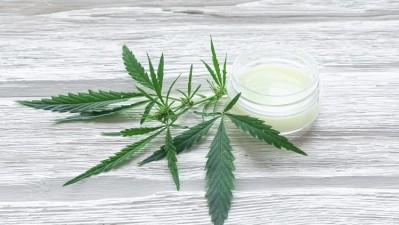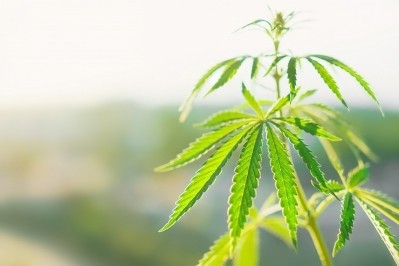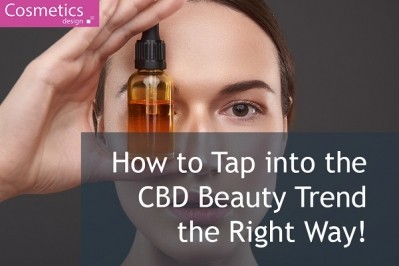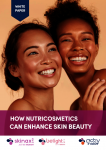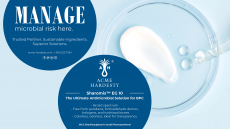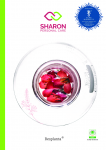What’s going on with CBD legislation for beauty?

Ronie Schmelz is Counsel at Tucker Ellis LLP and is also a leading expertise on CBD regulation for the beauty and personal care space.
Ahead of the webinar broadcast, on October 8th, we put a few questions to Ronie to find out what is happening in that space lately and a little bit more about the biggest hurdles to overcome.
Below, Ronie answers the questions we at Cosmetics Design posed to her:
How do you view the current state of regulation for CBD beauty?
Although the current state of regulation for CBD is in-flux for supplement and food products, the outlook is pretty good for beauty, as long as companies are careful about where they source the CBD, otherwise adhere to the regulations governing the marketing of cosmetic products, and limit sales to states where the sale of such products is legal. CBD, or Cannabidiol, is one of many cannabinoids found in the plant species Cannabis sativa L., which includes marijuana and hemp.
The 2018 Farm Bill defines hemp as any part of the plant Cannabis sativa L. with a THC concentration of not more than 0.3% on a dry weight basis, and removes hemp and hemp derivatives from Schedule I of the Controlled Substances Act. CBD derived from a marijuana plant, or from a hemp plant with a THC concentration of greater than 0.3%, fall outside the statutory definition of hemp and therefore remain controlled substances.
In order to legally market beauty products containing CBD, companies must be able to establish that the ingredient is derived from a hemp plant, grown by a licensed grower, and contains 0.3% or less THC. The United States Department of Agriculture, the regulatory agency responsible for implementing the 2018 Farm Bill, issued a legal opinion confirming that states may not prohibit the interstate transportation of hemp or hemp derived products that satisfy these requirements.
The Farm Bill does not, however, supplant the Food, Drug and Cosmetics Act (“Act”). Under the Act, companies that want to market beauty products containing CBD cannot claim the products, or the CBD, is intended to affect the structure or function of the body, or otherwise treat, mitigate, or prevent a disease. In addition to these Federal regulatory requirements, companies must also adhere to the laws of individual states, which have the right to restrict or limit the sale of CBD products within their jurisdictions. Thus, before shipping a CBD beauty product, companies should confirm the sale of such products is legal in the target state.
Why is it crucial for CBD brands and ingredients providers to be completely up to date on the fast-changing regulations?
The fast-changing regulations really have to do with growing and licensing requirements for hemp growers. The regulation of what constitutes legal hemp is pretty much set by the 2018 Farm Bill. Since CBD derived from hemp is the only ingredient that has been legalized by the Bill, it is critical for companies and ingredient suppliers to be sure (1) the hemp is sourced from a licensed grower, and (2) the THC content is 0.3% or lower. Products that fail to meet these two requirements fall outside the statutory definition of hemp, fall within the definition of marijuana under the Controlled Substances Act, and are thus illegal.
How do you feel that the audience will benefit by tuning into what you have to say during the course of the webinar?
Companies interested in marketing and selling CBD cosmetic products will gain insights into the regulatory landscape surrounding the marketing of such products, and in particular an understanding of the FDA’s and FTC’s current thinking and approach to regulating the products. I will also discuss strategies companies can follow to avoid attracting the attention of regulators and consumer lawyers.
What is the number one question that CBD beauty professionals come to you with?
There are really two questions we get the most. The first is can we legally sell cosmetics containing CBD? The second question is what can I do to protect the company from claims arising from the sale of CBD beauty products. As noted in response to question 1) above, the question of legality is somewhat straightforward. The question of protection is more complex, and involves the need contract with vendors, secure insurance coverage, and consider a myriad of other business- considerations.
We have already had a phenomenal early response to our invitation to join us for this webinar, so we would advise that your register now to ensure that you will be a part of an event designed to orientate and educate on all things CBD and hemp beauty.
To do so, please click on the this registration link, fill in your details, and join us on October 8th for our panel discussion.

